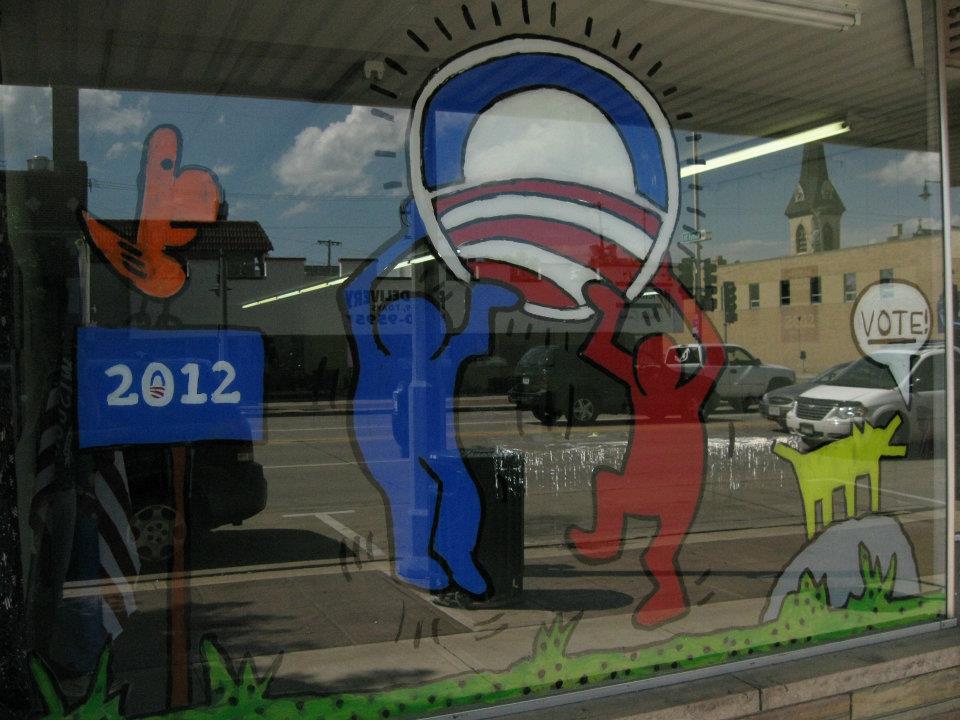I almost posted a quiz – a list of feminist slogans and quotes along with a list of years, with an opportunity for readers to match the two. Instead, I offer you an chance to reminisce about creativity in the feminist movement. Remember the Barbie Liberation League? In the 1990s….Grandma Daisy does this sort of storytelling best, so here she is.
Oh, children, your world is different, thank goodness. I lived through a fascinating and yet difficult time we called the Women’s Movement, or Women’s Liberation, Women’s Lib for short. We reminded lawmakers and voters that we are people, endowed with basic human rights along with our, ahem, voluptuous figures. To put it bluntly, we didn’t need balls to make good decisions about …. oh, your mother is listening. I can’t say that in front of you young ones., so back to the history behind the story. We had rallies, we held demonstrations. We ran for office ourselves instead of waiting for men to take care of our needs. We worked to pass laws that protected our right to make health care decisions.We built awareness of the importance of birth control and how much that birth control meant for our freedom, our liberation. We fought for equal pay for equal work. Laws passed, medications improved, but attitudes were harder to change.
Sometimes women got creative to make a point. The Barbie Liberation League was one such example. We females were determined to be good students and make it “cool” to be smart. Math and science were supposedly men’s territory, so girls had some catching up to do. Adult role models like teachers and nurses pushed us young ones to go farther, higher, faster into the world of advanced math and sciences.
Barbie dolls. You know the doll, right? Of course. They’re at the bottom of your sister’s closet with the rubber ducky and the worn out blankie she won’t throw away. Barbie, the doll with the unrealistic figure (39-21-33 at 6 feet tall were the proportional measurements, if you’re into trivia) was a favorite of many young girls. Girls knew she wasn’t realistic, but some tried too hard to look like her and became anorexic. A doll for a role model? Well, it happens.
When the Talking Teen Barbie came out, she had a limited vocabulary. Unfortunately, the people who programmed and recorded Barbie’s phrases had been in a fog throughout the entire women’s movement. Take a look at these examples.
Will we ever have enough clothes?
I love shopping!
Math class is tough.
Wanna have a pizza party?
In the old toy store aisles, G.I. Joe was a parallel type of doll, er, action figure, on the little boy side. His vocabulary was macho and tough – what they called “all male” back then.
This is going to be rough. Can you handle it?
I’ve got a tough assignment for you!
Mission accomplished. Good work, men!
The Barbie Liberation League took action. They bought Talking Barbie and Talking G.I. Joe from toy stores, swapped out the voice boxes, and then repackaged the dolls and returned them to the stores. Little boys and little girls got Barbies that said, “Vengeance is mine!” and G.I. Joes that suggested, “Let’s plan our dream wedding.” When Joe proclaimed “Math class is tough”, it sounded ludicrous.
Well, darlings, that was the point. If a man couldn’t say it without sounding idiotic, why should a woman repeat that phrase and internalize that philosophy? Talking Barbie wasn’t pulled off the market, but the feminists and the Barbie Liberation League had made their point. Being female didn’t mean being less intelligent. It still doesn’t.
Anyway , my grand-precious ones, some day I’ll tell you what we did when the guys at our college claimed that women couldn’t play jazz. Hah! We showed them, all right. Now go practice your trombone, and I’ll tell you that story later.







